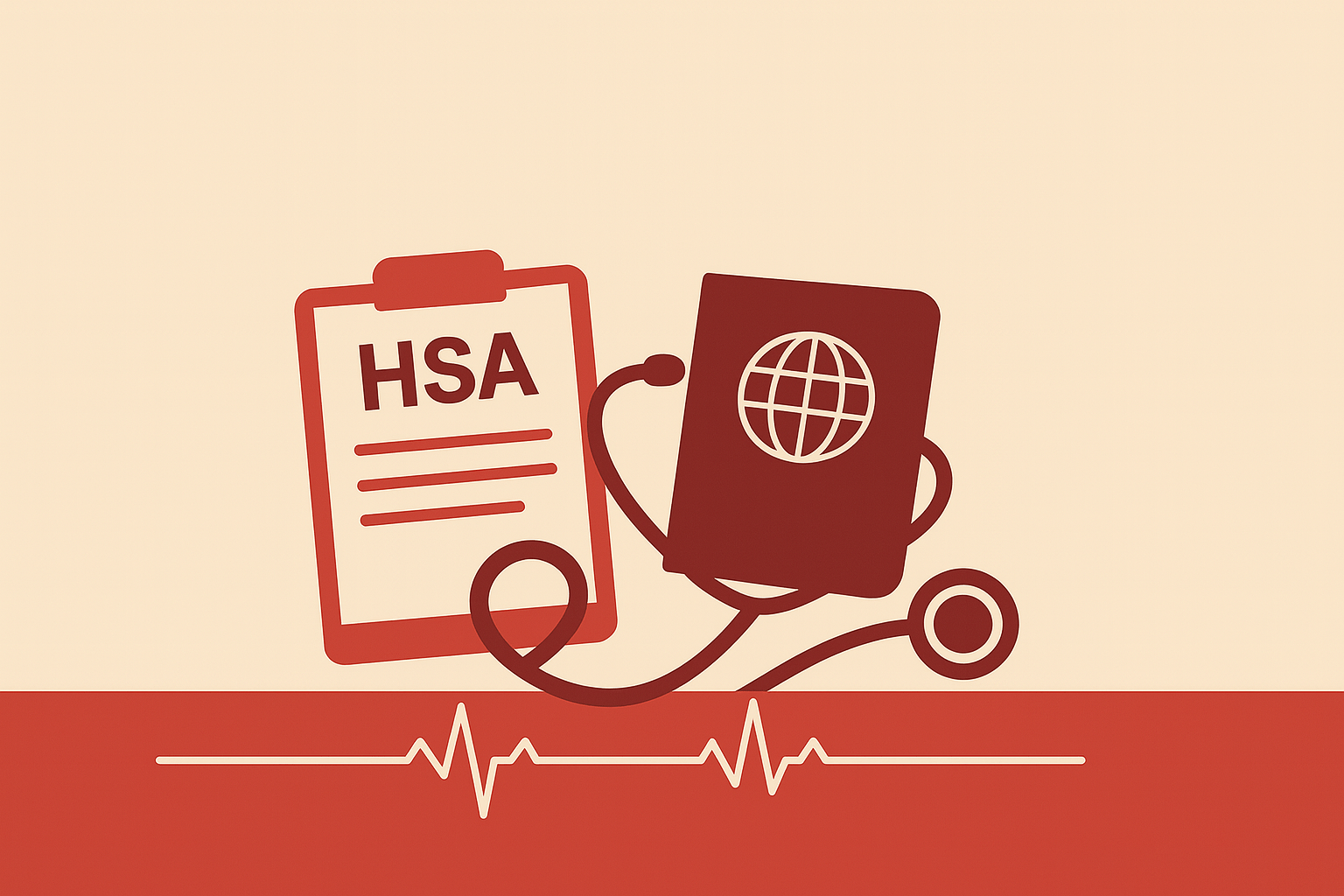Covering Fertility Treatment Costs with a Health Spending Account (HSA) in Canada
%20in%20Canada-min.png)
Starting a family can be an emotional journey, especially when fertility treatments become part of the process. For many Canadians, options like IVF and other assisted reproductive technologies offer real hope but introduce significant financial pressure. If you’re an incorporated business owner, you may be searching for a way to manage these expenses without creating personal financial strain.
A Health Spending Account (HSA) is one of the most effective tools available. It lets your company pay for a wide range of medical expenses – including fertility treatments – as a legitimate business cost. You receive tax-free reimbursement, and your corporation deducts the expense. This article explains how HSAs work, which fertility services qualify, and how they can dramatically reduce the cost of treatment. You’ll also see examples of how an HSA can be used in real life and how Garrett Agencies can guide you through setting one up.
The High Cost of Fertility Treatments in Canada
Fertility treatment often requires a substantial financial commitment. Common costs include:
- Fertility medications. Hormone therapy and ovulation-inducing drugs often range from hundreds to several thousand dollars per cycle.
- Intrauterine Insemination (IUI). Typically ranges from several hundred to a couple thousand dollars per attempt, not including medications. Many people need multiple cycles.
- In Vitro Fertilization (IVF). One IVF cycle generally costs tens of thousands of dollars when medications and related clinical procedures are included. Multiple cycles, advanced embryo testing, and add-on procedures can push costs much higher.
Some provinces offer limited public support for specific treatments, but most Canadians pay the majority of fertility expenses on their own. Traditional employer benefits rarely cover procedures like IVF at all. That gap is precisely where an HSA becomes valuable.
What is a Health Spending Account?
An HSA is a CRA-approved plan that allows an incorporated business to reimburse medical and dental expenses for its employees, including owner-employees and their families. Reimbursements are tax-free to the individual, and the corporation deducts the reimbursement as a business expense.
You set an annual allowance for each participant (for example, $5,000 or $10,000). When you incur an eligible medical expense, you submit the receipt to your HSA provider, and your corporation reimburses the cost. As long as the expense qualifies under CRA’s medical expense criteria, it can be fully reimbursed tax-free.
For business owners, this effectively converts personal medical expenses into pre-tax corporate expenses. Instead of paying a $20,000 fertility bill from after-tax personal income, your company can cover it directly.
Fertility Treatments Eligible Under an HSA
An HSA covers a wide range of medical expenses. For fertility-related care, the following are typically eligible:
Assisted Reproductive Technologies
IVF, IUI, and similar procedures, including egg retrieval, embryo transfer, clinic fees, lab work, and necessary prescription medications.
Fertility Testing and Consultations
Specialist visits, diagnostic tests, bloodwork, ultrasounds, sperm analysis, and related medical assessments.
Surrogacy and Donor-Related Medical Costs
Medical procedures for surrogates and donors, such as embryo implantation, retrievals, and required examinations. (Direct compensation to a surrogate or donor is not eligible, but the medical components are.)
Adoption-Related Medical Expenses
Medical exams or required treatments for the adopted child or for you as part of the adoption process.
Travel for Medical Treatment
Travel to access fertility care in another city, lodging near a clinic, and other travel-related medical expenses allowed under CRA guidelines.
Most medically necessary fertility procedures and related services qualify. This includes virtually every medical cost along the fertility journey, provided it meets CRA’s general medical expense rules.
Why Use an HSA for Fertility Expenses?
- Significant Tax Savings: Using an HSA means your corporation pays fertility expenses with pre-tax dollars while you receive the reimbursement tax-free. Without an HSA, you would need to withdraw substantially more income personally to net the same amount after tax.
- More Advantageous Than Medical Tax Credits: The Medical Expense Tax Credit provides limited relief. An HSA offers a full corporate deduction on every eligible dollar. The difference in savings is substantial.
- No Fertility-Specific Limits: Unlike insurance plans that exclude or cap fertility coverage, an HSA has no category-based restrictions. If the cost is an eligible medical expense, the HSA can reimburse it.
- Flexibility and Control: There are no premiums for specific types of coverage. You pay only when expenses occur. You also set the annual limit that makes sense for your business.
- Family Coverage: HSAs can reimburse medical expenses for your spouse and dependents. This matters, since fertility care often involves both partners and sometimes a surrogate’s or donor’s medical services.
- Reduced Financial Strain: Knowing that high-cost treatments are reimbursable with pre-tax dollars reduces stress and lets you focus on health and family rather than financial logistics.
Hypothetical Scenarios
Scenario 1: IVF for a Married Couple
Sarah and Alex run an incorporated consulting business. Their IVF cycle will cost about $18,000. Without an HSA, they would need to draw far more income personally just to cover that cost after tax. With an HSA, their corporation reimburses the full amount. The cost becomes a deductible business expense, and Sarah and Alex incur no personal tax. They effectively save tens of percent on the real cost of treatment.
Scenario 2: Surrogacy for a Same-Sex Couple
Liam and Mark co-own a small tech firm. Their surrogacy-related medical costs total roughly $50,000. Through their HSA, the company reimburses every eligible medical component: IVF procedures, donor-related medical services, and the surrogate’s medical care. The reimbursement is tax-free, and the business deducts the whole amount. This turns what would have been a major personal financial burden into a manageable corporate expense.
Setting Up an HSA and How Garrett Agencies Can Help
Setting up an HSA is straightforward. The steps are simple:
- Choose an HSA provider: A third-party administrator processes claims, ensures CRA compliance, and runs the plan.
- Set annual limits: You decide how much coverage each participant receives.
- Begin submitting claims: Participants upload receipts through the provider’s platform, and the company reimburses them.
HSAs operate under federal tax rules, so the advantages apply regardless of your province. At Garrett Agencies, we routinely help incorporated professionals across Canada implement HSAs as part of a smart, long-term financial strategy.
Conclusion and Next Steps
Fertility treatments can be expensive, but an HSA allows incorporated business owners to cover those costs in a tax-smart, financially sustainable way. By running eligible medical expenses through your corporation, you protect your personal finances while still pursuing the family you want.
If you’re considering fertility treatments and want to explore how an HSA can support you, Garrett Agencies is here to help. Reach out for a consultation, and we’ll guide you through setting up a plan that fits your needs so you can focus on building your family with confidence.
Subscribe to our newsletter
Stay Informed with the Latest Insights and Updates
.svg)
%20150px%20x%20150px.svg)


%20The%20Complete%20Guide-min.png)